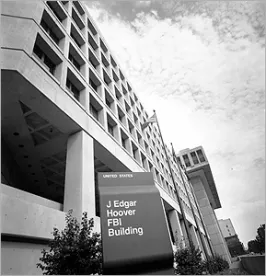The General Services Administration has canceled its request for lease proposals for a new FBI headquarters, ending a three-year procurement that would have replaced the aging J. Edgar Hoover Building.
GSA’s decision comes after it had narrowed the potential list of locations to Springfield, Virginia; Landover, Maryland; or Greenbelt, Maryland. The procurement had drawn widespread attention, in part because GSA had proposed to sell the FBI’s current building — located in the heart of downtown Washington, D.C. — to the winning offeror.
The reasons for GSA’s decision are not entirely clear, although early reports suggest that appropriations issues played a role. As we recently noted, GSA leases must be approved by Congress before appropriations are made available. See 40 U.S.C. § 3307(a). If GSA fails to obtain approval, the lease may be void as a violation of the Anti-Deficiency Act.
The cancelation decision potentially is subject to a bid protest at the Government Accountability Office or the Court of Federal Claims because GSA must have “a valid reason for canceling” a lease procurement. Parcel 49C Ltd. P’ship v. United States, 31 F.3d 1147, 1151 (Fed. Cir. 1994); 126 Northpoint Plaza Ltd. P’ship v. United States, 34 Fed. Cl. 105 (1995) (enjoining cancelation of RLP). In Parcel 49C, the Federal Circuit enjoined cancelation of a lease when the record showed that the agency’s cancelation was merely pretext for avoiding an award to a disfavored offeror. Id.
Whether the cancelation will trigger such a protest may depend on, among other things, GSA’s justification for its decision, the status of the current lease and lessor, and whether GSA intends to issue a new RLP. The cancelation may also implicate a variety of issues relating to the sale of the FBI’s current building. On that point, the courts have exercised jurisdiction over an agency’s decision to cancel a sale. Wetsel-Oviatt Lumber Co., Inc. v. United States, 40 Fed. Cl. 557, 565 (1998) (enjoining decision to cancel a sale of timber).
GSA lease protests can implicate difficult jurisdictional issues, particularly on the subject of appropriations. For example, in a recent protest challenging the terms of a lease for a FBI office in Cleveland, Ohio, the Court of Federal Claims dismissed claims relating to appropriations for lack of jurisdiction. Cleveland Assets, LLC v. United States, 17-277C (Fed. Cl. May 22, 2017).[1] Nonetheless, given the size and significance of the FBI project, a challenge to the cancelation decision would not be surprising.
[1] The protestor has appealed the Court’s decision. Today, the Court denied the protestor’s motion for a stay pending appeal. Cleveland Assets, LLC v. United States, 17-277C (July 11, 2017).




 />i
/>i
